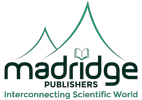
Madridge
We publish journals with a view to serve various purposes which include but not limited to just peer review, broad distribution, branding and authority, portability and creation of the archive of a body of literature....

We publish journals with a view to serve various purposes which include but not limited to just peer review, broad distribution, branding and authority, portability and creation of the archive of a body of literature....
Editor Name: Kevin Lyons
Designation: Professor
University: North Carolina State University
Country: USA
Biography: Dr. Lyons is interested in chemically reacting flows,
imaging measurement in combustion experiments, flow control for propulsion
applications, manipulation of reaction zones with electric and magnetic fields,
industrial burner design, flame stabilization, spray combustion, turbulent
mixing, and flame threats to fire fighters and soldiers. He has been
on the NCSU-MAE faculty since receiving his Ph.D. from Yale University in 1994. At the undergraduate level he teaches Engineering
Thermodynamics I and II (MAE 201 and 302) . 201 is the students’ first class in
thermodynamics and the material presented related to property evaluation, phase
diagrams, the 1st Law of Thermodynamics and an introduction to engineering
devices. Lyons places a particular emphasis on these background fundamentals
for the development of strong problem-solving skills. MAE 302 deals with topics
in engine cycles, heating, air conditioning, combustion, high speed flow and an
introduction to statistical thermodynamics. Additionally, Lyons is enjoying
teaching MAE 412, which is a project course in thermal-fluids. While part of
the course is devoted to pumps and heat exchangers, much of the course is
directed at team project work in thermo-fluids, involving both standard as well
as emerging topics of interest. At the graduate level, he sometimes teaches Advanced
Engineering Thermodynamics (MAE 501) and Statistical Thermodynamics (MAE 702).
MAE 501 is a course that investigates thermodynamics from a more fundamental
perspective than that encountered in typical undergraduate thermodynamics. MAE
702 examines the meaning of energy and temperature at the microscopic-level and
develops the connection between microscopic and macroscopic thermophysics.
Special topics courses in research areas can be offered depending on demand. As
a faculty advisor, Lyons thinks it is important for his students to become
independent investigators, appreciating the importance that comes from
formulating experiments that are simple, yet telling. He provides his students
the freedom to follow their own directions, with an eye toward open-ended
research and discovery. These types of skills will serve them well whether
destined for careers in industrial research, academia or government
laboratories.